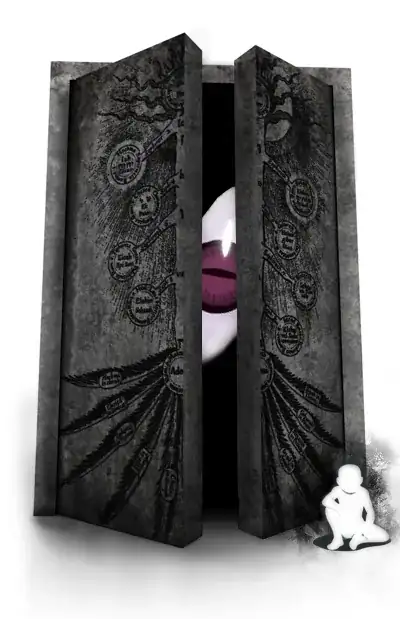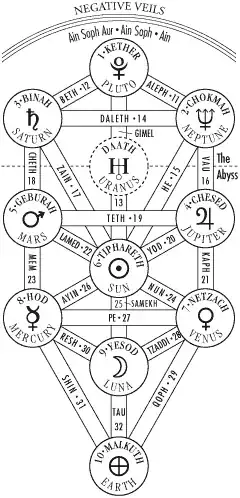In Fullmetal Alchemist: Brotherhood, two gates were shown instead of just one as in the original. Both of the gates have pictures of a tree on them. As you have already said, one of them is the tree of life.
To uncover the identity of the other gate, we have to bring to light the book of Genesis, which is where I personally believe the two gates originated from.
If you are familiar with the story of creation, you know that Adam and Eve lived happily in a garden where only one law existed. This law was simply not to eat the fruit which grew from the tree of knowledge of good and evil. Adam and Eve were told that disobedience would lead to death.
We later realize that you would not actually stop breathing and became a cold lifeless shell, but instead, this death refers to dying to the flesh. Dying to the flesh means surrendering your life to your deadliest desires and choosing to never obtain fulfillment. Pretty dismal, right? Anyway, Adam and Eve decided to rebel and eat the fruit after being promised by the devil that such consumption would unfold the truth and enable them to understand the ways of God.
Back to the universe of Fullmetal Alchemist, alchemy was a powerful science that brought happiness to both those using its powers for good and those receiving aid from alchemists. A rule was given with this great gift: do not perform human transmutation. Ed and Al had repeatedly heard that death followed after a human transmutation.
Against better judgment, the two brothers gave into their deadliest desire to have their deceased mother be by their sides once again. Immediately following the human transmutation, Ed and Al passed through a gate with picture of a tree where they uncovered truth, both good and evil knowledge that governed alchemy and even the world itself. Because of the boys' disobedience, Al lost his entire body and could not be entirely happy or fulfilled without it. He died to the flesh... LITERALLY!
For these reasons, I am led to believe that the tree on the gate resembles Adam and Eve's tree of knowledge of good and evil found in the Bible.

